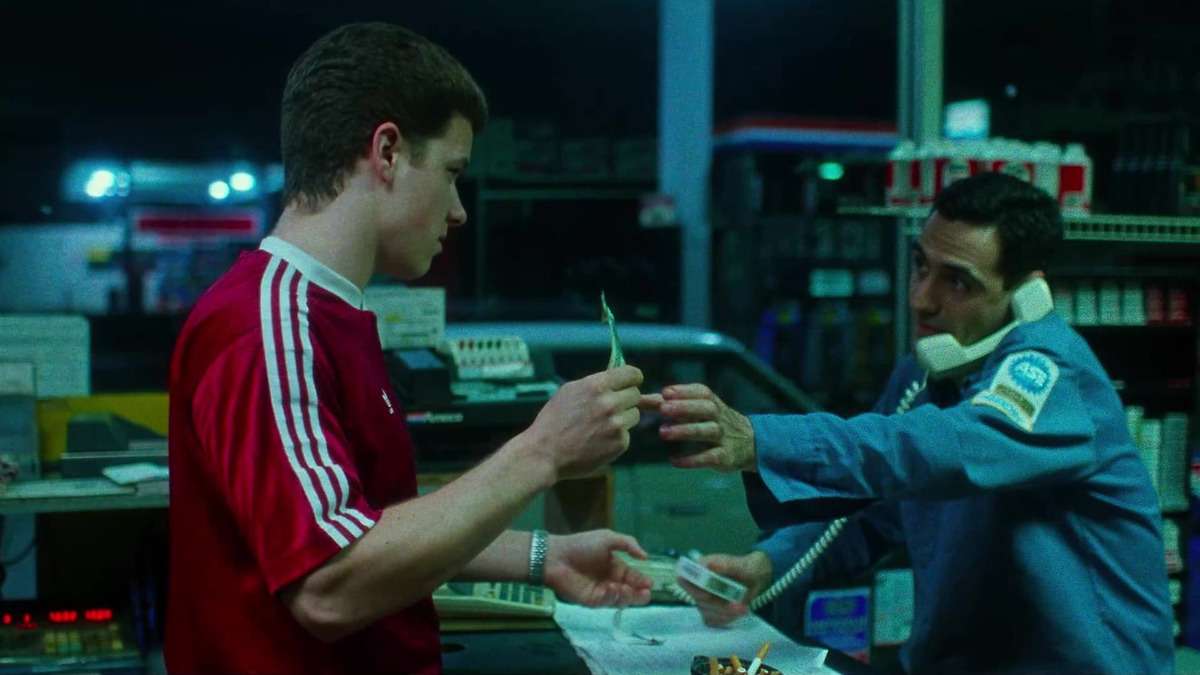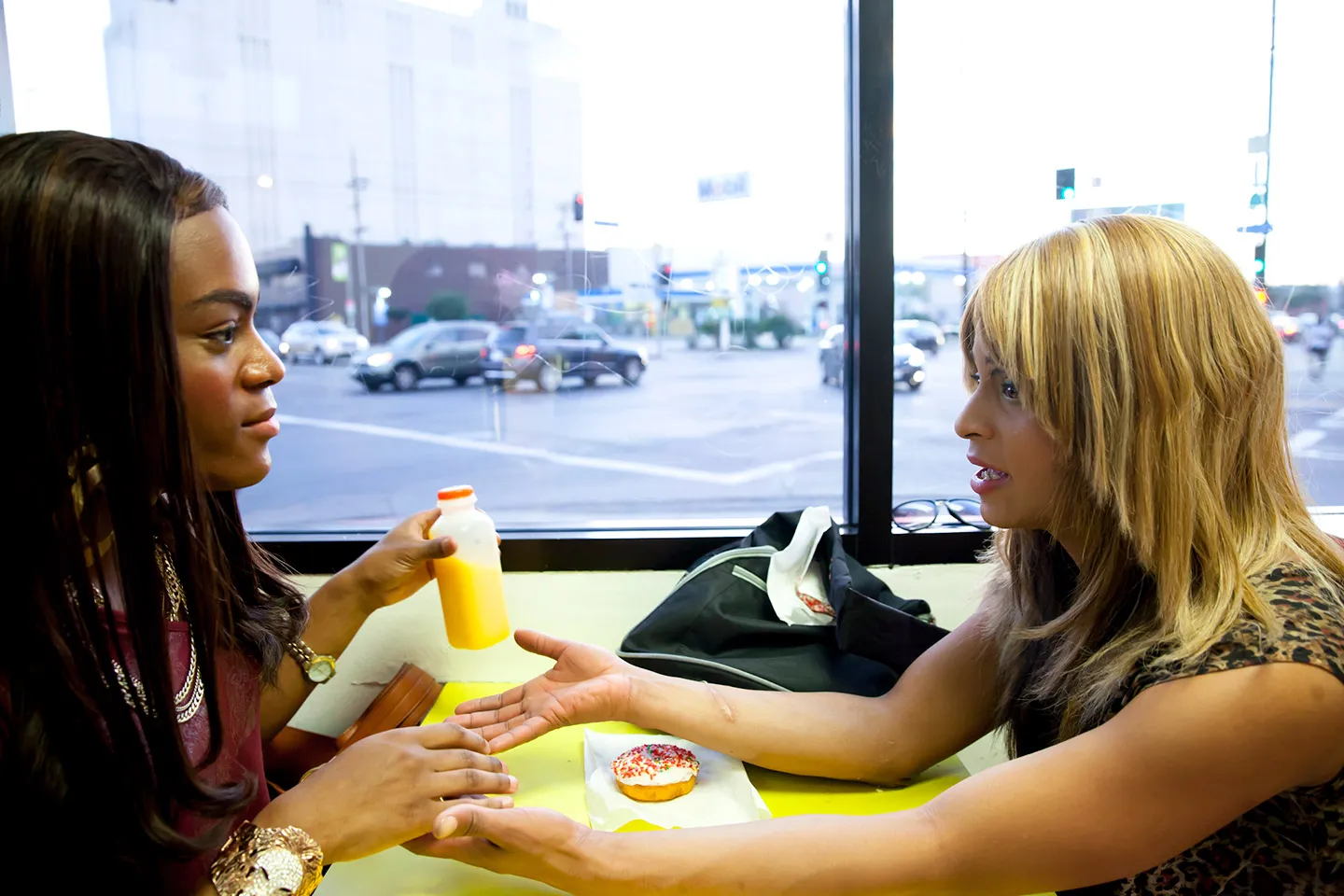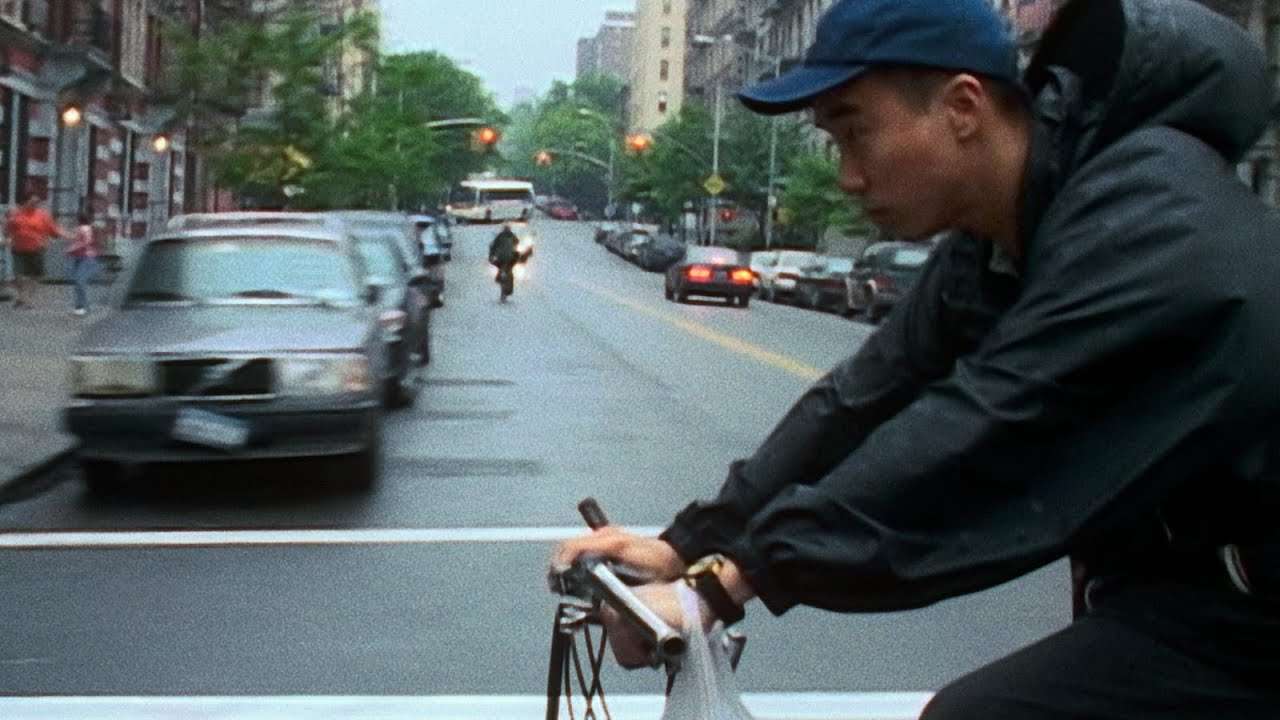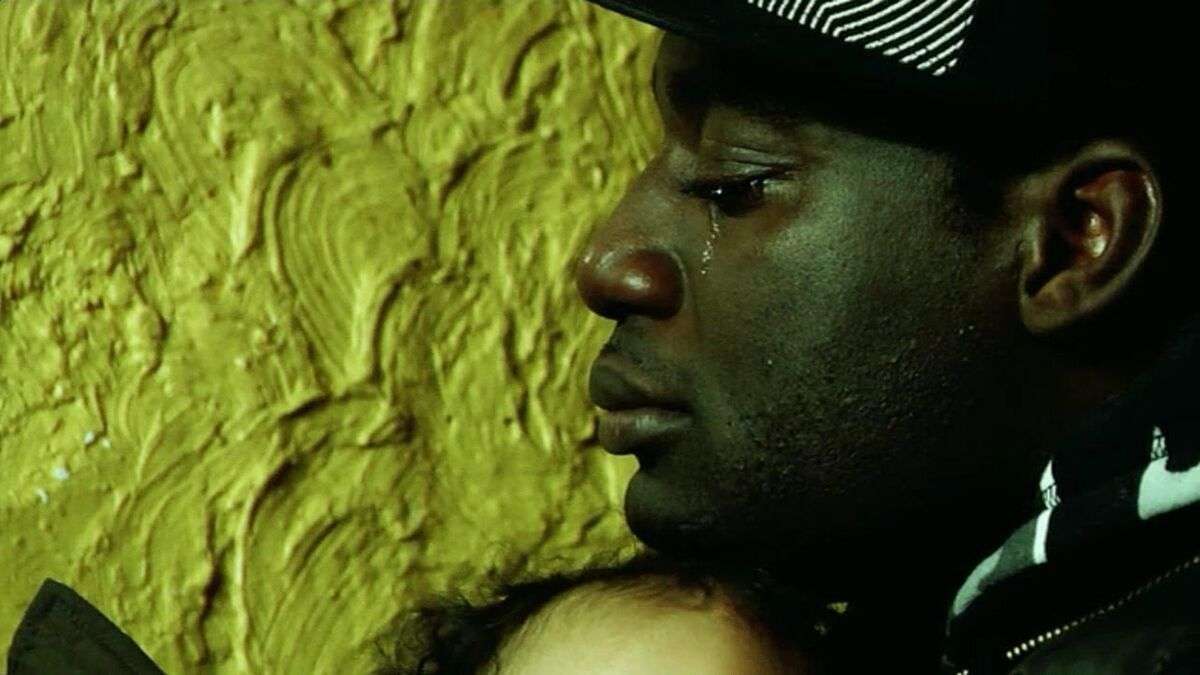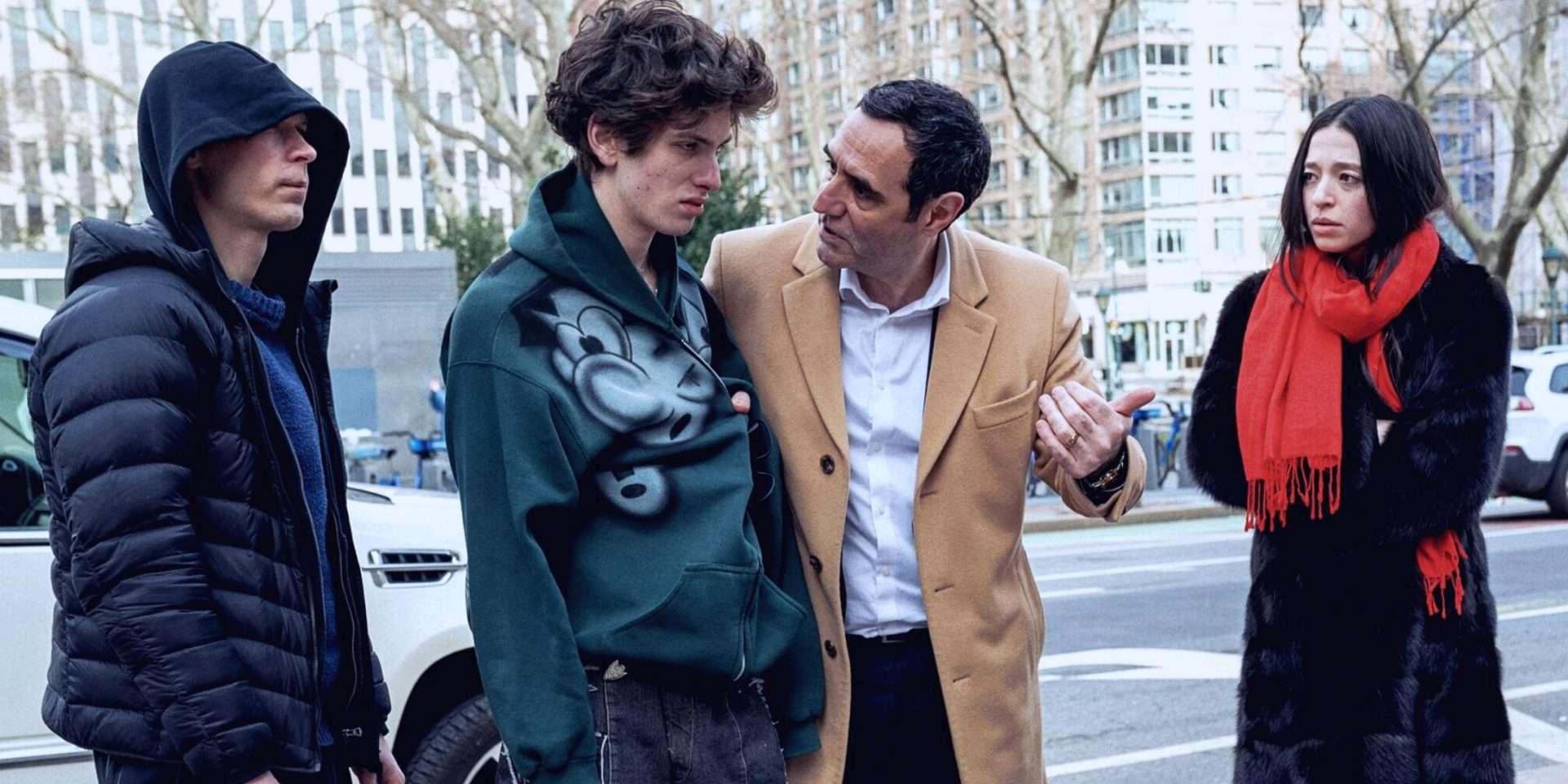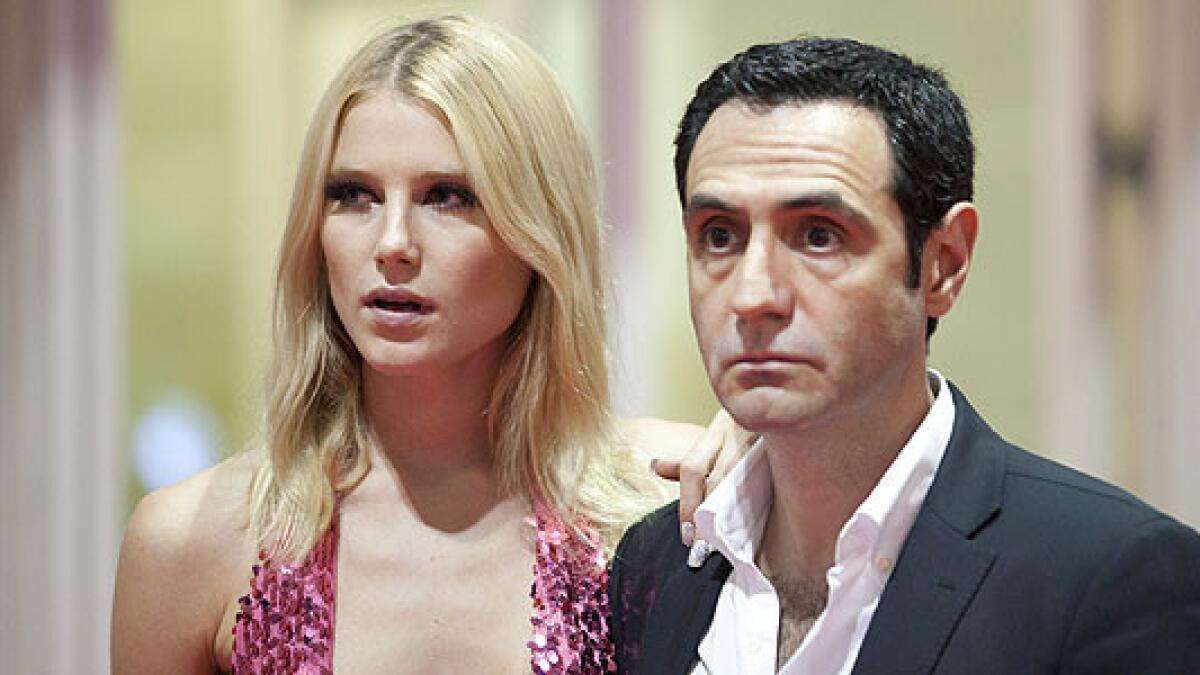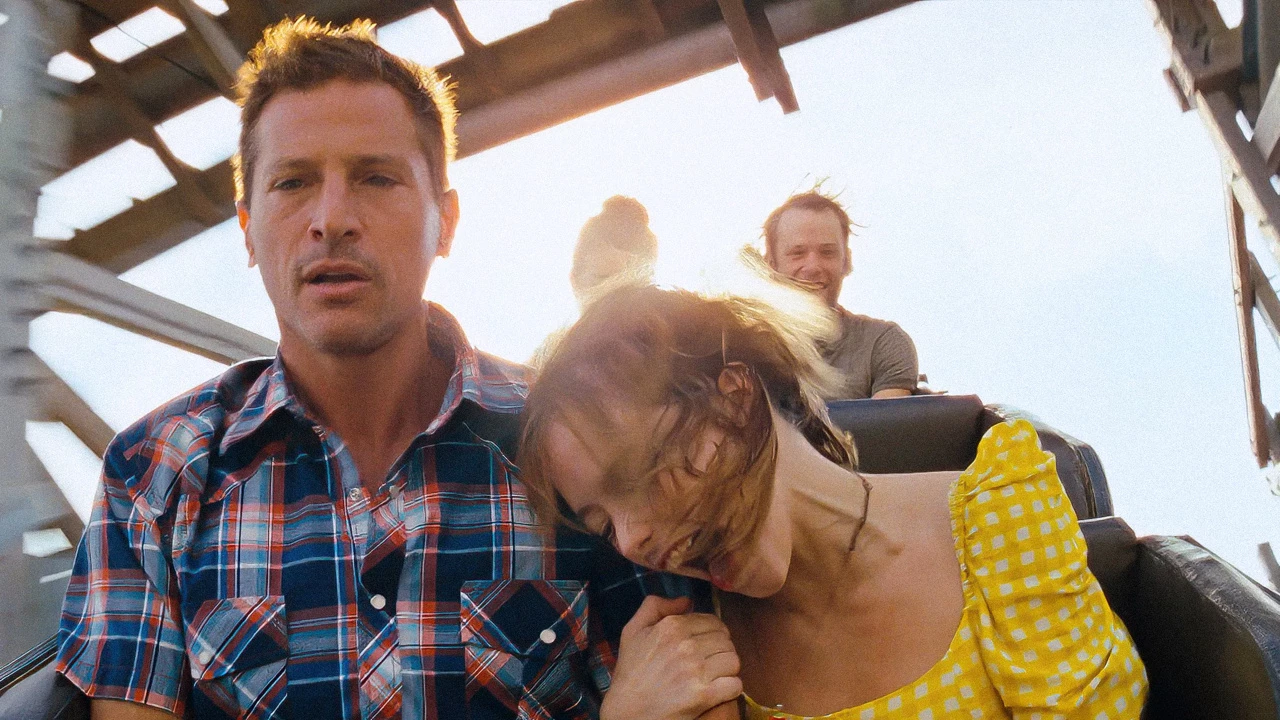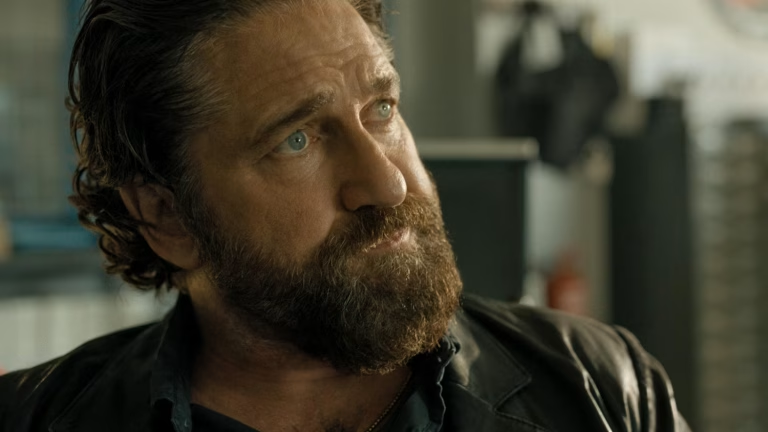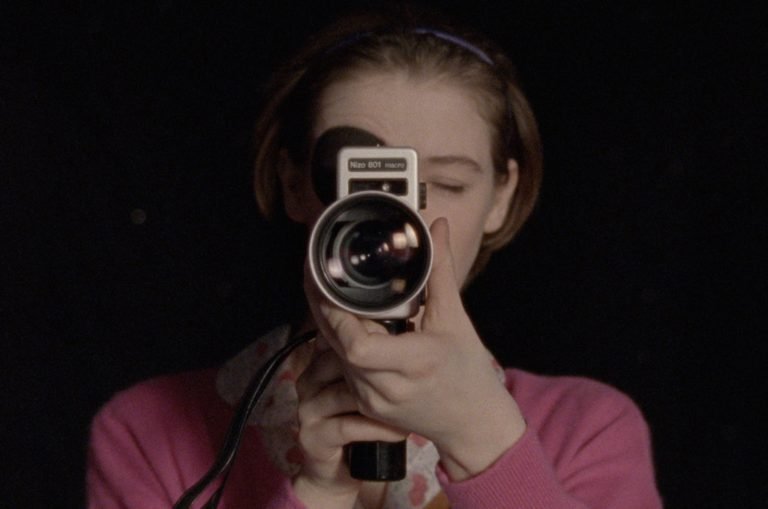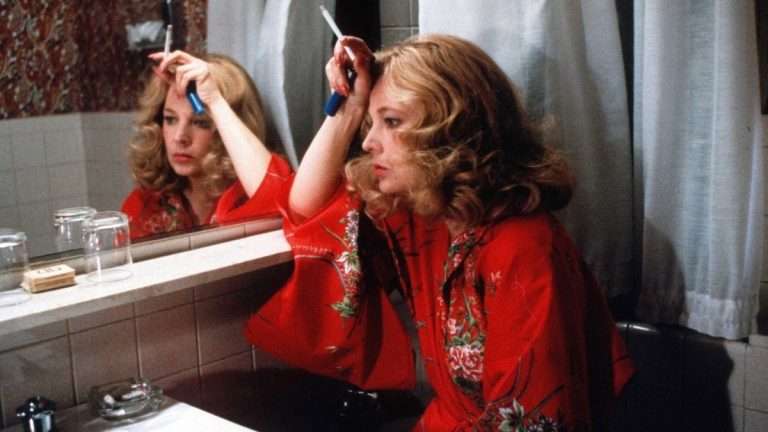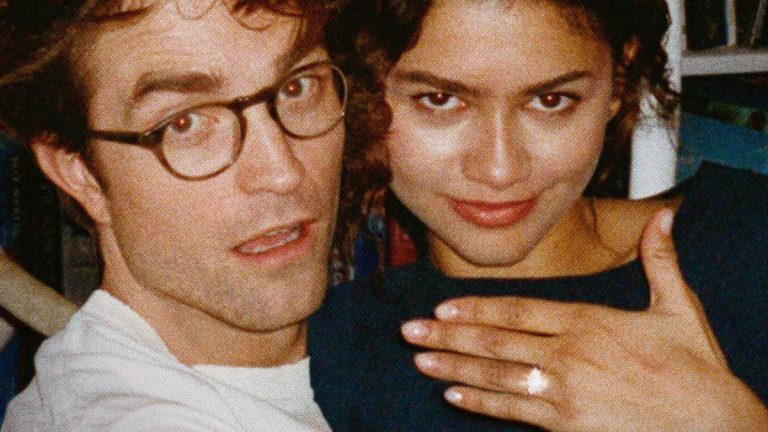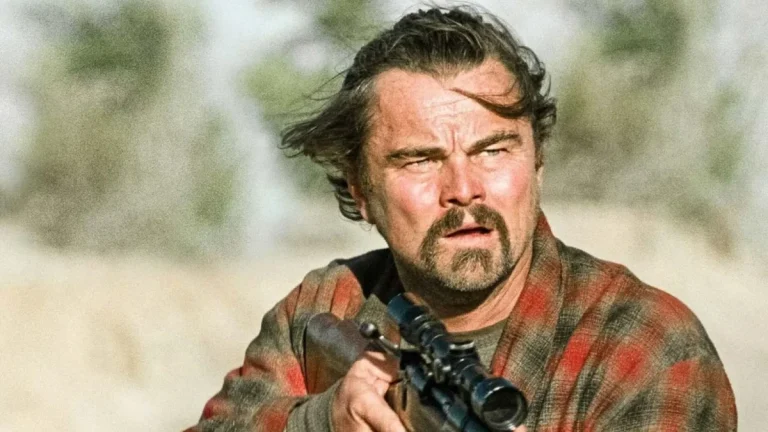Sean Baker’s fans would hail him as a pioneer of empathetic cinema in the modern day, and his detractors would dismiss him as a two-bit purveyor of poverty porn. One thing that neither side can deny, however, is that Sean Baker has become one of the defining voices of independent American cinema in the 21st century. A filmmaker who’s taken his cues from all over the history of the medium—from kitchen sink realism to exploitation films—and melded them together into his proper vision, Baker’s world is one distinctly defined by its proximity to our very own.
Looking across the totality of Baker’s filmography, there are certainly recurring themes and motifs that make their way from beginning to end—poverty, resilience, Karren Karagulian—but each one of his films stands on its own in their idiosyncrasies and how they choose to tackle these ideas. No two Baker protagonists are interchangeable, and yet each one fits comfortably into a vision of the United States in its current state of dismissal for those on the fringes of its more digestible social spheres. Just as the man is finally getting his flowers amidst the release of his Palme d’Or-winning eighth feature, the time has come to lay those eight films out and see where they rank between one another.
8. Four Letter Words (2000)
Some directors have such clarity of vision at a young age that their first film out the gate is a perfect distillation of their incoming career, an unbeatable thesis statement that wholeheartedly encapsulates anything and everything that would come to define who they are and what they have to say. Most of the time, though, a director’s debut tends to fall closer in quality to Sean Baker’s “Four Letter Words,” a film so distant from what he’d want to accomplish that, up until now, finding a watchable copy of the film has become tantamount to a mission fit for Indiana Jones.
On that front, Baker seems to have alluded to the possibility of a restored release sometime in 2025, which is especially gracious considering the fact that “Four Letter Words” is just about the furthest thing one would expect (or want) from a Baker film; it seems as though every other American director debuting in the mid-90s to early 2000s (from Ben Stiller to Noah Baumbach) felt that their ticket to unpacking the malaise of early-20s white guy mediocrity would be to just riff on what Richard Linklater had already mastered by this time, and Baker’s debut reads no differently.
In this particular case, however, the unlikeable characters that Baker normally infuses with some semblance of understanding are replaced by a series of boneheads who spend 80 minutes talking about nothing but chasing tail—a realistic depiction, to be sure, but hardly one that adds anything new or worthwhile to the discussion.
7. Tangerine (2015)
Referring to “Tangerine” as “the worst of Sean Baker’s good films” is just about the fastest way to wind up with a red dot aimed at your forehead. What would quickly be known the world over as the prototypical iPhone movie made waves not just because of its technical ingenuity, but also thanks to Baker’s unflinching depiction of the trans sex worker experience; where most transgender characters in film (particularly coming from cisgender filmmakers) tended to treat them as punchlines or vehicles for abuse at the time, Baker finds in “Tangerine” the space to examine these women in all their virtues and flaws, as real people deserving of a spotlight.
So why does “Tangerine” rank so low on this list, you may ask? In short, it mostly comes down to a combination of two factors: Baker’s otherwise superior output, and this film’s specific style. Game-changing as Baker’s iPhone shooting may have been—though not the first film to do so, it certainly increased the profile of the method before folks like Steven Soderbergh would run whatever potential it had into the ground—it does result in a sort of visual flatness that, in combination with Baker’s choice of hyper-saturated colors and bass-destroying music cues, can be rather headache-inducing if that isn’t your particular jam. That said, if it is your jam, then “Tangerine” has exactly the flavor of donuts you’ve been craving.
6. Take Out (2004)
Co-directed by Shih-Ching Tsou, “Take Out” stands as the first film to really explore the sort of material Baker would find himself fascinated with over the course of the rest of his career. Gone are the douchey frat boys and in come the sort of people they’d walk all over in the streets without a second thought. Stylistically speaking, Baker would still be coming into his own—having cited the Dardenne brothers as an influence in the past, it’s impossible to watch this and not be reminded of their particular visceral approach—but “Take Out” remains a strong step in his exploration of marginalized characters.
Within minutes, the stakes are set for the film’s subject as Baker and Tsou waste no time establishing the tribulations of an undocumented Chinese migrant given only a day to pay off his mounting smuggling debt. From there, the film’s low-resolution shooting technique places us in constant proximity to Ming Ding’s rush towards salvation, all the while the pixelated grain keeps us at a frustrating distance from true connection to the struggles of a man most of us could never relate to in full. “Take Out” thus constitutes one of the filmmaker’s simplest yet most effective explorations of life on the fringes of society.
5. Prince of Broadway (2008)
Comedy scripture will always tell us that the key to an easy laugh would be to pair up an unsuspecting bachelor with a baby. “Prince of Broadway” takes this premise and certainly milks it for a fair bit of comedic value, but seeing as how this is Baker, the comedy always comes as a necessary form of levity to alleviate the blinding hardship staring us in the face. Once again, the subject is an undocumented immigrant, but here, Baker’s focus on the hustle takes an added dimension of having an extra mouth to feed, all the while underscoring the reality that this added responsibility, saddled upon the protagonist out of nowhere, is something he never asked for in the first place.
It’s here that “Prince of Broadway” makes the most use of its potential, as Prince Abu gives an incredibly compelling and empathetic performance as an unwitting father with no business taking on this responsibility, but who makes whatever effort he can despite that fact. Abu’s hardships are only ever funny when his assuredly confused line delivery makes them so, but all throughout the film he and Baker give the sense that this man’s status as someone constantly on his toes gives him a position of sympathy towards a child suddenly dropped by his unprepared (though also sympathetically explored) mother.
More Related to Sean Baker’s Movies: 20 Best Movie Performances of 2024
4. Anora (2024)
If you thought ranking “Tangerine” second-to-last was a hot take, then what can be said about placing “Anora,” the Sean Baker film to finally push him into deserved awards consideration, in fourth? I suppose you could say, in the lady’s own words, “Fuck you, motherfucker!” but rest assured, this position is nothing to sneeze at. In truth, were the film not hampered by some massive pacing issues—how Best Editing is one of the Oscar categories for which the film is a frontrunner is a complete and total mystery—then “Anora” would be every bit the unimpeachable crossover smash its greatest advocates praise it to be.
Sadly, though, two hours and 20 minutes is way, WAY too much to ask for nearly any comedy (let alone the screwball kind), and the longer “Anora” proves itself adept in this particular zone, the more exhausting it proves to be when Baker refuses to segue us out of it. Regardless, Mikey Madison’s performance is nothing if not one of the single greatest acting showcases of 2024, making for a perfect emblem of the sort of venomous but ultimately fragile figures that occupy the director’s field of interest. “Anora” could certainly use a trim, but any less time spent with this lead performance still feels like the tragic end of a dream.
3. Starlet (2012)
By far and away Baker’s most underrated film, “Starlet” constitutes a distinct shift in the director’s area of focus, as his sights shifted from New York (where he’d return eventually with “Anora”) to the Southern half of the United States. Additionally, “Starlet” marks Baker’s focus shifting from migrants to American-born sex workers, a versatile and under-explored subset of the nation’s population that the director would see to be just as worthy of empathy as any other. This time, another unlikely pairing would be the catalyst for such a vision, and “Starlet” provides one practically perfect in its refusal to over-exert itself.
Model and actress Dree Hemingway and 85-year-old newcomer Besedka Johnson (whose only performance would be in this film) make for a sweet pairing that works in large part thanks to how grounded they feel in their environment. These two have only just met, but Baker orchestrates their friendship in such a way that such disparate figures seem so perfectly inclined toward one another. With that, “Starlet” becomes one of Baker’s most quietly poignant explorations of love, albeit love of a far different variety than one (namely him) is typically accustomed to seeing.
2. Red Rocket (2021)
Continuing Sean Baker’s odyssey into sex work is by far the prickliest film of the bunch—a film whose subject could easily have veered it off-course to completely detestable grounds beyond the scope of watchability. However, by the grace of Simon Rex’s toweringly sleazy performance, “Red Rocket” becomes easily one of the director’s most alluring character studies, particularly in its refusal to sugarcoat any of his contemptible behavior and motivations. Set deep in the trenches of what was just set to become Trump’s America, the film finds its footing in the story of a man who’s lost his own, hell-bent on returning to an industry propped up by his feeding off the objectification of women.
This doesn’t mean, of course, that Mikey Saber’s own appeal is nonexistent, for “Red Rocket” would be entirely unbearable were he not so disgustingly charismatic as to weasel his way through these circumstances as a grade-A bottom-feeder. In a town where very many are victims of circumstance, Baker makes no mistake in showing that Saber stands out as the sort who luxuriates in the propagation of this sort of misery—as long as it makes him look more desirable by comparison, he’d be more than willing to throw his own mother into a pile of mud.
1. The Florida Project (2017)
One of Sean Baker’s many cinematic influences is the era of Italian neorealism that swept the country’s postwar film scene, and the particular focus on children making their way through a dilapidated world they can’t fully comprehend seems especially crucial in the filmmaker’s shaping of his best and most affecting film. “The Florida Project” is just as much about the parents living one paycheck away from homelessness as it is about the children who find awe and wonder in the asbestos-filled corners of an abandoned swampside motel, but it’s the latter focus that gives the film its distinct sense of inevitable heartbreak.
Anchored by a show-stopping performance by a six-year-old Brooklynn Prince, the film explores the hidden homeless as a microcosm of America’s treatment of its own lower classes in just about the most gutting manner possible, primarily because of its focus on those unable to understand what the system surrounding them has done to their lives. As with all of Baker’s films, while individuals are driven by their own choices, they can only ever be a product of the world made for them, and “The Florida Project” makes a world, much like our own, that finds more value in shaping a crumbling motel into a castle than making a viable utopia for its citizens.

